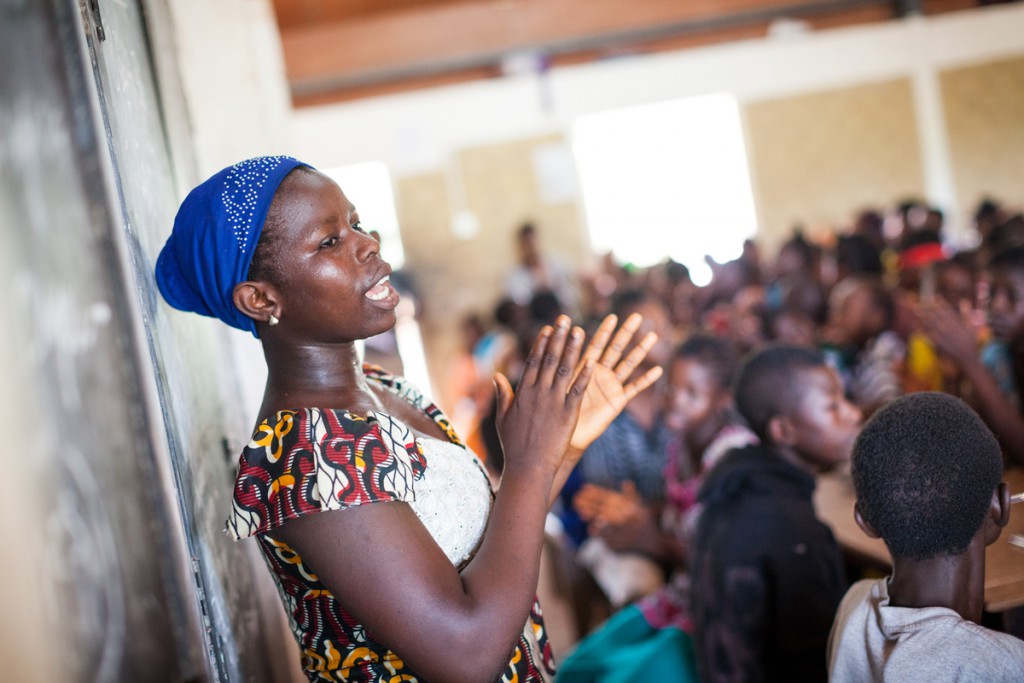How can we maximise the value of art and music in education and how can it be blended with more traditional subjects?

“The greatest scientists are artists as well.” – Albert Einstein
One of the most difficult battles in education in Sierra Leone is to get parents and students to understand the vital importance of art and the creative subjects within the curriculum. In the Sierra Leonean context I would say that it is hard to get many teachers and professional educators to see a link between the lack of creativity and the lack of engaged and participatory students. I would go further to say that a lack of creativity denies the possibility of progress or development as a whole.
Since examinations in Sierra Leone simply measure a student’s ability to regurgitate subject content – these standard tests are the be-all and end-all of the education system here – there is rarely an understanding of the deeper purposes of education to grow the next generation of innovators. Creativity is not seen as a catalyst for the birth and evolution of new creative citizens, ready and able to take their communities and countries in new directions and to new heights. Clearly, if this generation tells the next generation what to think, there is no development. Instead we are effectively photocopying stale ideas from one generation to the next with no change. The ‘rote learning, ask no questions, be quiet and absorb’ form of learning – common in many so-called “developing” nations – effectively ensures that there is almost no possibility of development.
Creativity and imagination are like muscles. If we never use them they become weak, lazy and unusable. So… how to convince teachers, parents and students of the crucial role of the arts for real education?
There is much work to be done and the lack of belief in the importance of the arts has resulted in a terrible lack of talented artists of all kinds and, in particular, in talented art and music teachers. There is necessarily a vicious cycle occurring: fewer people prioritise the arts; so fewer people become expert and really devote themselves to the arts; so fewer people are capable of inspiring and training for excellence in the arts; so there are fewer people who prioritise the arts as it doesn’t seem to be useful; and so on and so on…
In EducAid we have succeeded in maintaining a fairly high level of enthusiasm for drama. We have become conscious more recently of the urgent need to redouble our efforts to engage volunteers from elsewhere, international teachers and practitioners to improve the chances of getting enthusiasm for the arts more generally. I will use this platform to ask if there are any music or art teachers who have any capacity, and would like an inspiring challenge and adventure, to come and work with some great young people, short or long term. In this way, you can help our youngsters get their creative muscles working; you can be part of readying citizens for a newly innovative and productive future. It is our students’ imaginations that will define their path and not ours.
If you are interested in knowing more about EducAid’s work with vulnerable young people please go to: www@educaid.org.uk and if you are in a position to contribute to our work please go to: https://www.educaid.org.uk/support-us/donate/ or https://mydonate.bt.com/donation/start.html?charity=66007
If you would like to get in touch about volunteering, please email mark@educaid.org.uk